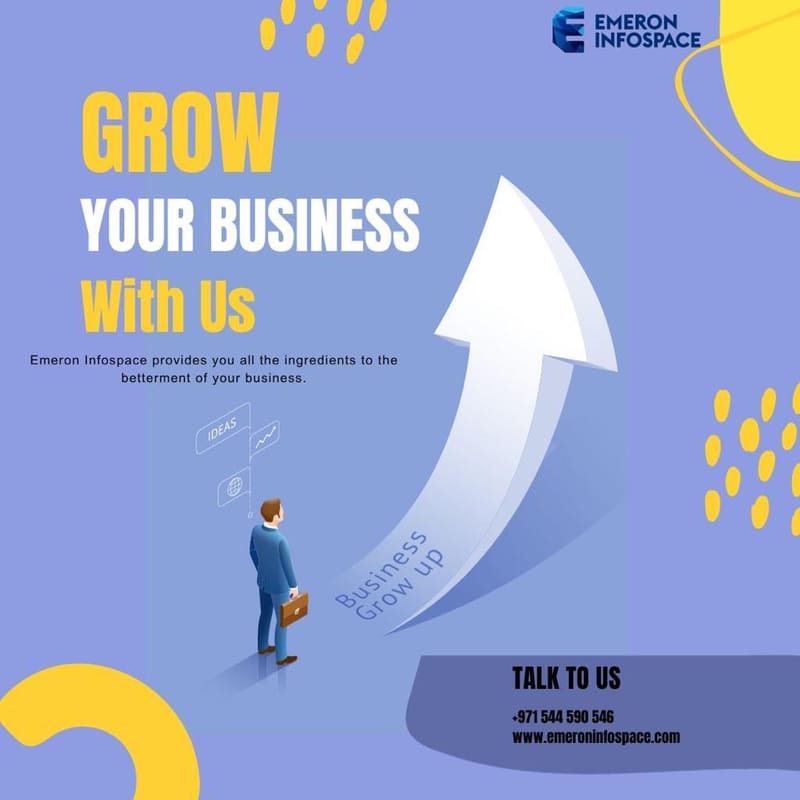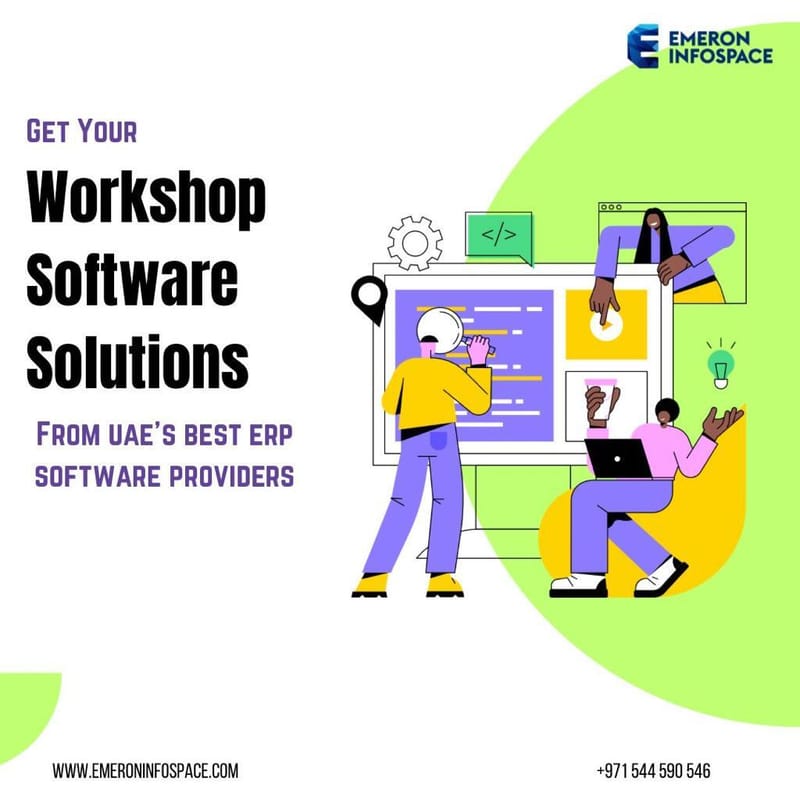Emeron Infospace provides Automobile Garage ERP Software in UAE to help auto workshops and service centers manage job cards, spare parts, billing, and customer service.
Read MoreABOUT US
Our Journey
From our modest beginnings to becoming a frontrunner in the infospace industry, Emeron's journey has been nothing short of remarkable. Through challenges and innovations, we have consistently stayed ahead of the curve, ensuring that our clients receive state-of-the-art solutions tailored to their unique requirements.
Our Mission
Emeron Infospace is on a mission to harness the potential of technology to create efficient, innovative, and scalable solutions. We strive to empower businesses, individuals, and communities by connecting them with the information and tools they need to succeed in this digital age.
Our Vision
To be recognized as a global leader in the infospace industry, known for our unwavering commitment to quality, innovation, and exceptional customer experiences.
Our Team
Behind the success of Emeron Infospace is a team of dedicated professionals, each an expert in their respective fields. Our collective passion for technology and innovation fuels our drive to deliver unparalleled services to our clients.
Why Choose Emeron Infospace?
- Expertise - We boast a team of industry veterans who bring a wealth of experience and knowledge to the table.
- Innovation - Our solutions are always at the forefront of technology, ensuring that our clients stay ahead in the digital game.
- Customer-Centric Approach - At the heart of our operations is a deep-rooted commitment to customer satisfaction. Your success is our ultimate reward.
Emeron Infospace: The Ultimate Software Solution in UAE
Emeron Infospace, a leading software company in the UAE, is revolutionizing the digital landscape with its comprehensive range of software solutions. From ERP software to point of sales systems, Emeron Infospace has carved a niche for itself in the competitive market, ensuring businesses thrive in the digital age.
Core Software Solutions Offered
ERP Software Solutions
Emeron Infospace is not just a name; it's a promise of quality and efficiency. Their ERP software solutions, including accounting software, restaurant POS, and auto workshop management software, are tailored to meet the diverse needs of businesses in the UAE and beyond.
Digital Solutions
In today's digital age, having a robust online presence is paramount. Emeron Infospace understands this and offers a plethora of digital solutions:
- Ecommerce Builder: Crafting unique online shopping experiences that captivate and convert.
- Website Builder: Designing responsive and user-friendly websites that resonate with audiences globally.
- Whatsapp Store Builder: Integrating shopping experiences into the world's most popular messaging app, ensuring businesses reach customers effectively.
Integrations and API Development
Offering top-tier Integrations and API Development services across the UAE and the broader GCC/MENA region, Emeron Infospace ensures seamless connectivity between software systems, enhancing functionality and user experience for businesses globally.
Customisation on Existing Softwares
Tailoring software to meet unique needs, Emeron Infospace specializes in customizing existing software platforms, ensuring they align perfectly with business processes and goals.
Database Management
Emeron Infospace provides robust database solutions that optimize performance, scalability, and reliability, ensuring data integrity and security for businesses globally.
Digital Store Creations
Crafting compelling digital stores that offer a seamless shopping experience, driving sales and customer engagement across the GCC/MENA region and the world.
Whatsapp Store Creations
Revolutionizing commerce with Whatsapp Store solutions, Emeron Infospace integrates shopping experiences into WhatsApp, ensuring businesses reach customers effectively.
Website Building Solutions
Creating digital identities that resonate with audiences, ensuring businesses have a strong online presence in the GCC/MENA region and globally.
Ecommerce Solutions
Empowering online businesses with smooth transactions, secure checkouts, and an intuitive shopping experience for customers worldwide.
Custom SEO Solutions
Boosting online visibility, Emeron Infospace's strategies ensure top rankings in search results, driving organic traffic and conversions globally.
NFC Business QR Code Solutions
Facilitating quick information sharing and seamless transactions, NFC Business QR Code Solutions are ideal for companies looking to enhance business interactions.
CRM Solutions
Streamlining customer relations, Emeron Infospace ensures efficient customer management, driving loyalty and growth for companies worldwide.
HR Solutions
Optimizing human resource management, Emeron Infospace's HR solutions streamline recruitment, payroll, and employee management, ensuring operational efficiency.
Point of Sale Solutions
Revolutionizing retail with systems that ensure quick checkouts, inventory management, and sales analytics, enhancing profitability and customer satisfaction.
Conclusion
Emeron Infospace stands as a beacon of innovation in the software industry of the UAE. With its diverse range of solutions and commitment to excellence, it's no wonder businesses across the GCC/MENA region trust Emeron Infospace to propel them into the digital future.
FAQs
- What is Emeron Infospace's core expertise?
- Emeron Infospace specializes in providing ERP software solutions and a variety of digital solutions tailored for businesses.
- Do they offer customization on existing software?
- Yes, Emeron Infospace offers customization services to align software perfectly with business processes and goals.
- How does their Whatsapp Store Builder work?
- It integrates shopping experiences into WhatsApp, allowing businesses to reach customers directly through the messaging app.
- Are their solutions limited to the UAE?
- While based in the UAE, Emeron Infospace offers solutions that cater to businesses globally, especially in the GCC/MENA region.
- What makes Emeron Infospace's SEO solutions unique?
- Their custom SEO strategies ensure top rankings in search results, driving organic traffic and conversions across the GCC/MENA region and globally.
Emeron
Our JOURNEY
2011
Emeron had a humble beginning in the year 2011 in India under the name Emeron Solutions. During the period, technology was a big thing in India and most companies were trying to bring in a change. However, the midsize companies in India were finding it very difficult to be part of this revolution. The simple reason being ‘technology was expensive’. Emeron Solution was created with its founder’s vision to help these midsize companies to be part of the technology revolution by providing professional ERP solutions at affordable rates.
02/03/20262012
The company developed its first solution which was a basic version of inventory control, accounting and CRM system. A young team of professionals were put together to form the front and backend of the company. Business started with Emeron marking its small presence in the IT map of India.
02/03/20262013
The third year of operation saw the company invest heavily on product development. The basic CRM and inventory control solutions evolved in to a strong CRM and Trading ERP solution. The company also came up with its first HRM module during this period. 2013 is also marked as an important year in the company’s evolution as Emeron moved its operations from India to Dubai.
02/03/20262014
The year saw the company invest heavily on R&D and product development. The company studied various business verticals in the Middle East and drafted plans to develop custom designed ERP systems for each vertical. This idea was taken up by the dedicated engineers at Emeron and the company successfully launch its first custom build ERP System for Real Estate Companies. The same year saw the rollout of Emeron’s second custom software and this time for Rent a Car Companies. Both software were meticulously designed and planned taking in to account all business aspects critical for Middle East operations.
02/03/20262015
Walking the success path, Emeron continued to develop more custom ERP solutions for various Industries in the Middle East. Emeron launched five more customized solutions during 2015 for Construction, Cargo, Restaurant, Garage and Used Cars businesses.
02/03/20262016
2016 saw Emeron establish a strong foot in the Middle East market by recording steady growth in sales and business returns. Continuing with the company’s guiding principal of continuous innovation and product development, Emeron added two more custom ERP solutions to its portfolio via Clinics and sports schools management. The same year saw Emeron announce the start of two major projects to develop a comprehensive ERP solution for Retail Business Management and School Administration.
02/03/20262017
2017 Building upon the momentum, 2017 was a hallmark year for Emeron, as it expanded its influence and reach across the UAE and neighboring countries. The brand's commitment to offering solutions that matched regional business demands saw it launch an advanced solution for the travel and tourism industry. This year, Emeron also undertook its most significant enterprise project yet – developing an ERP solution specifically for large-scale manufacturing industries operating in the Middle East.
02/03/20262018
Emeron's philosophy of "Evolution through Innovation" manifested spectacularly in 2018 when the company embraced emerging technologies like AI and machine learning. With this integration, Emeron successfully launched AI-driven modules in its existing ERP systems, ensuring businesses were not only efficient but also predictive and adaptive to market changes. 2018 also marked the year Emeron initiated its operations in Saudi Arabia, bringing its suite of ERP solutions to a wider audience.
02/03/20262019
The company's growth trajectory continued upward. Recognizing the global shift towards digital platforms, Emeron launched its e-commerce solutions, tailored for Middle East online retail spaces. They also started their venture into mobile solutions, foreseeing the increasing reliance on smartphones for business operations. Meanwhile, in response to the booming fintech sector in Dubai, Emeron launched an ERP solution specifically for financial services and banking institutions.
02/03/20262020
While the global community faced unprecedented challenges due to the pandemic, Emeron responded with agility and resilience. Prioritizing digital transformation, the company introduced cloud-based ERP solutions, allowing businesses to operate seamlessly in remote and hybrid environments. Additionally, recognizing the importance of health and medical services, Emeron launched a dedicated ERP for healthcare institutions in the Middle East, assisting them in these challenging times
02/03/20262021
Emeron continued to consolidate its position as a leader in the ERP domain by focusing on sustainability and long-term growth. The year saw the unveiling of ERP solutions aimed at renewable energy sectors and eco-friendly businesses in the Middle East. Moreover, with the rise of entrepreneurial ventures in the region, Emeron launched a dedicated startup-friendly ERP package, ensuring newer businesses were well-equipped from their inception
02/03/20262022
The most recent year showcased Emeron's commitment to global expansion and local mastery. While continuing to deepen its roots in the Middle East, Emeron also started exploring opportunities in North Africa and Europe. The company also celebrated its decade-long journey by hosting a grand conference in Dubai, showcasing its achievements and laying out its vision for the next decade. Another significant step was its venture into blockchain technology, aiming to integrate it into future ERP solutions for enhanced security and transparency.
02/03/2026OUR METHODOLOGIES
Requirement Analysis
System Analysis & Design
Database Designing
Testing, Debugging & Integration
Deployment
Maintenance
blogs

9 Essential Steps To Start Your Business Successfully

Insights And Strategies For Effective Business Management

Tips And Tricks For Business Success

EMPOWER YOUR BUSINESS WITH SMART MANAGEMENT TECHNIQUES
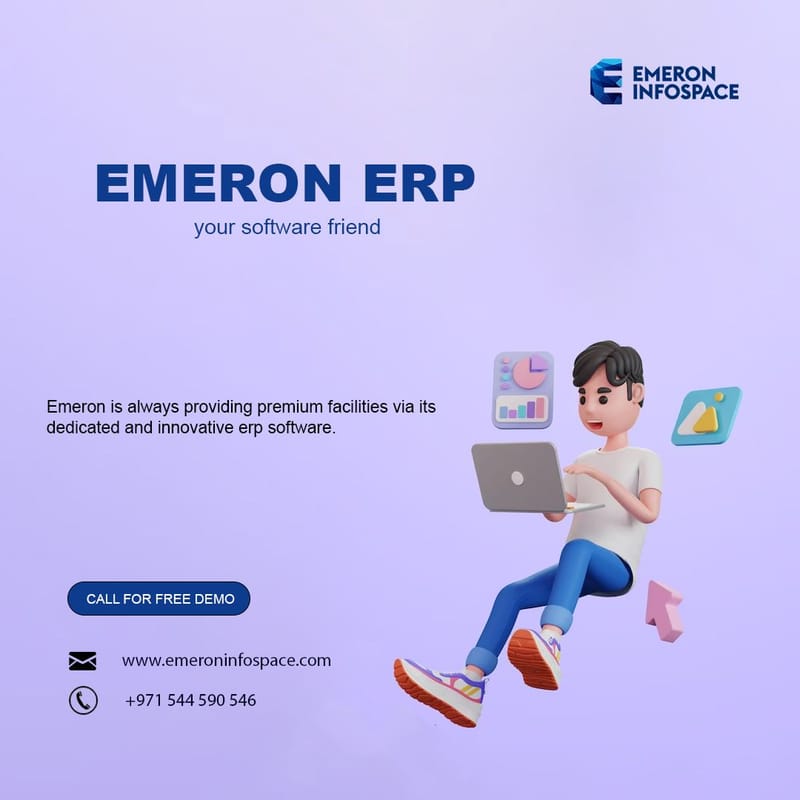
TRANSFORM YOUR BUSINESS WITH ERP AND BEYOND
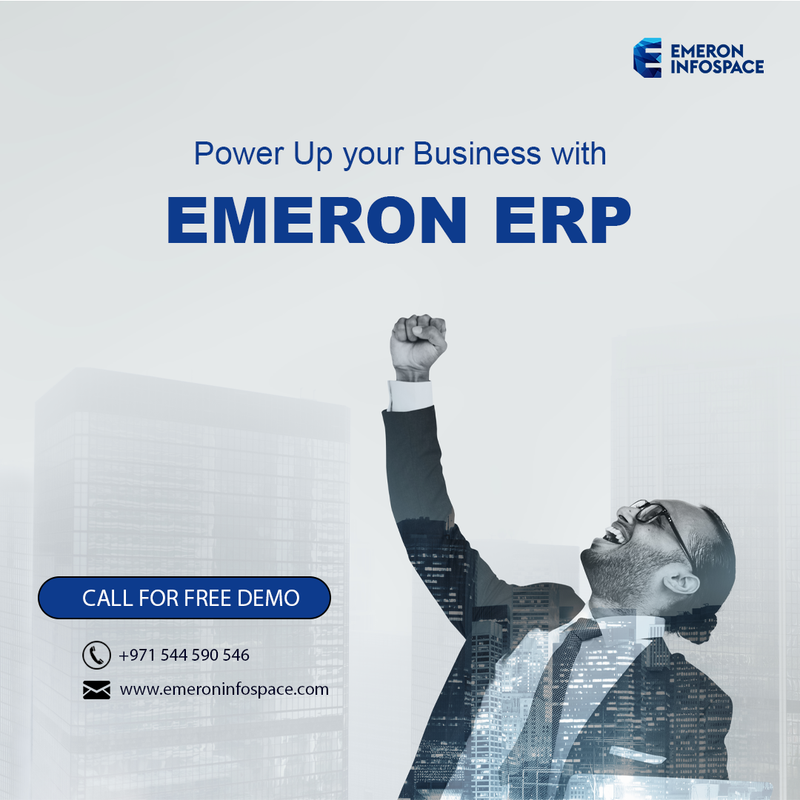
Maximize Efficiency and Profitability with ERP
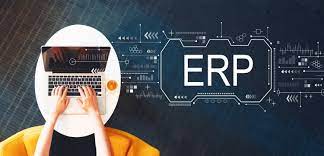
STREAMLINE YOUR OPERATIONS WITH ERP SOLUTIONS : A GUIDE
Emeron Infospace: The Ultimate Software Solution Provider in the MENA Region
Blog
Emeron Infospace provides Travel & Tourism ERP Software in UAE for travel agencies, tour operators, and DMCs to streamline bookings, payments, and customer management.
Read MoreEmeron Infospace provides Manufacturing ERP Software in UAE to optimize production planning, inventory, sales, and finances for better efficiency.
Read MoreHealthcare ERP UAE, Hospital management software Dubai, Clinic ERP UAE, Pharmacy management software UAE, Patient management system Dubai, EMR software UAE, Healthcare billing software Dubai, Insurance claim ERP UAE, Medical ERP UAE, Healthcare automation UAE
Read MoreEmeron Infospace offers Legal Firm ERP Software in UAE to streamline case management, client billing, documents, and compliance for law firms.
Read MoreEmeron Infospace offers Real Estate ERP Software in UAE to manage properties, sales, contracts, tenants, and finances with ease.
Read MoreEmeron Infospace provides Auto Garage ERP Software in UAE to manage customer bookings, vehicles, inventory, billing, and workshop operations with ease.
Read MoreEmeron Infospace provides Legal ERP Software in UAE, helping law firms and legal departments manage cases, clients, contracts, and billing efficiently.
Read MoreEmeron Infospace offers Visitor & Queue Management System in UAE to streamline visitor check-ins, manage queues, and enhance customer experience.
Read MoreEmeron Infospace offers HR management software in UAE with payroll, attendance, performance, and recruitment features to streamline workforce operations.
Read MoreEmeron Infospace provides IoT and phone farming solutions in UAE for passive income through automated smartphone networks managed end-to-end.
Read MoreEmeron Infospace offers web and mobile app development in UAE, delivering custom, responsive, and scalable digital solutions for businesses.
Read MoreArticles
The transformation of ERP systems mirrors the broader evolution of technology. The shift from legacy to cloud-based solutions has empowered businesses to become more agile, efficient, and competitive. As the landscape continues to evolve, it's essential for organizations to embrace this change to stay at the forefront of their industries.
Read MoreThe integration of AI with ERP systems brings a new dimension to decision-making and business processes. Machine learning algorithms can analyze historical data to provide insights and predictions that were once impossible with traditional ERP systems. This capability is especially valuable in demand forecasting, inventory management, and customer relationship management.AI can also help in proactive issue detection. By continuously monitoring the system's performance, AI can identify anomalies and alert administrators to potential problems, enabling swift corrective actions. In this way, AI is not just about improving business processes; it's also about safeguarding the health and stability of the ERP system.
Read More











